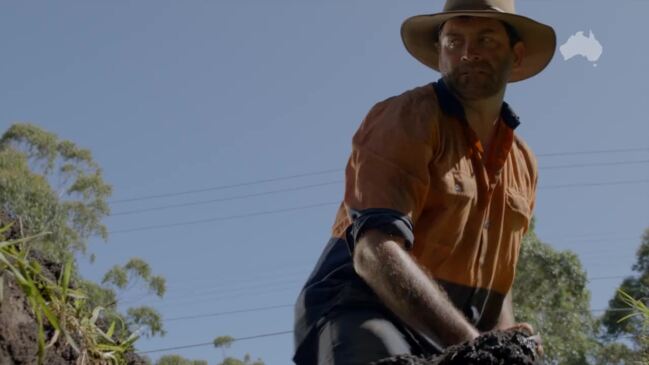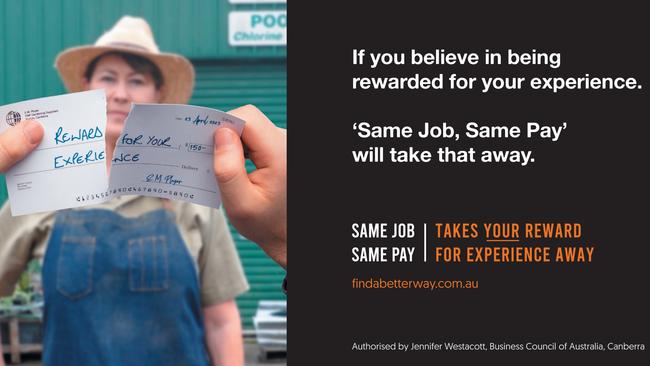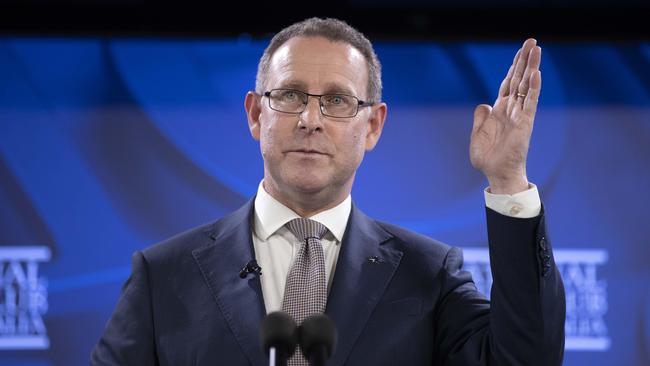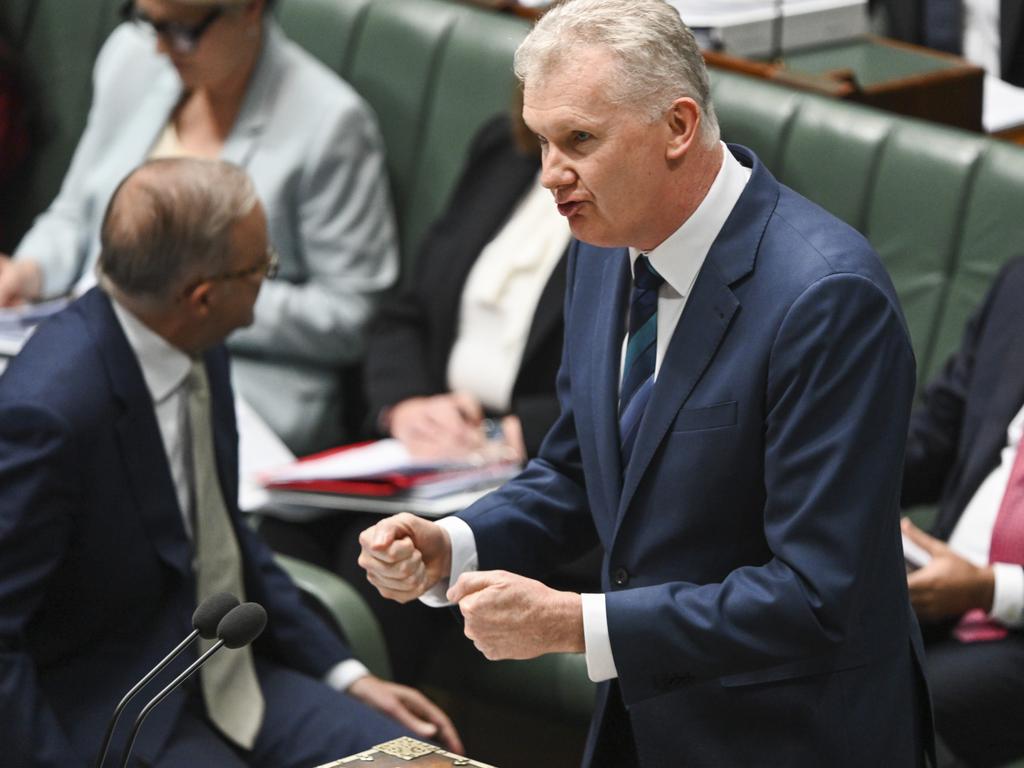PM faces full-scale industrial war in biggest business revolt since mining tax
Employers, farmers and small business owners will fight Anthony Albanese’s industrial relations changes backed by the biggest war chest since the mining tax fight.

Australia’s largest employers, farmers and small-business owners have declared war on Anthony Albanese’s industrial relations reforms, launching a multimillion-dollar campaign attacking union-backed same job, same pay laws as a direct hit on aspirational workers.
The industry-wide blitz, funded by the biggest war chest since the mining tax fight, will be unveiled on Monday coinciding with the Prime Minister’s return from visits to Singapore and Vietnam.
“A Better Way, for Better Pay” campaign ads will warn Australians that if you believe in being rewarded for your experience and working harder – “same job, same pay will take that away”.
In a joint statement opposing Labor’s “destructive IR changes”, business groups said the reforms would “lead to lower wage growth and fewer jobs – compounding the plight of workers and families who are already doing it tough”.
“The so-called same job, same pay proposal does not mean equal pay for men and women. It does not speak of fairness and justice, as its name falsely represents. It means by law, employers will have to pay workers with little knowledge or experience exactly the same as workers with decades of knowledge and experience,” the statement said.

“It means by law, you cannot earn better pay by working harder or longer, if your colleague does not share your ambition or work ethic. This retrograde policy will deny Australian workers flexibility and the capacity to be treated individually. It will deny them the opportunity to negotiate more pay for harder work.”
The alliance includes the Minerals Council of Australia, Business Council of Australia, Australian Chamber of Commerce and Industry, Australian Petroleum & Exploration Association, Master Builders Australia, National Farmers Federation, Council of Small Business Organisations Australia and the Recruitment, Consulting and Staffing Association.
Business leaders are threatening to indefinitely bankroll TV, radio and print ads to heap pressure on the Albanese government ahead of Workplace Relations Minister Tony Burke rolling out union-endorsed IR laws in coming months.

The Australian can reveal that despite fierce resistance from business groups unhappy with the speed and scale of Labor’s IR reforms, the government is using a Productivity, Education and Training fund to engage industry representatives on its workplace shake-up.
Industry sources said the government had reached out to big business groups with offers of up to $200,000 in PET funding to engage on a suite of proposed IR legislation. The government re-established the PET fund with an $8.9m October budget allocation, before boosting it last month to $20m over two years.
While most of the big industry groups are expected to reject access to the fund, which the Gillard government used in 2012 to provide an $11m grant to the ACTU, smaller industry groups will consider boosting their education and training resources. Mr Burke’s spokesman said the PET fund was open to stakeholders “regardless of whether or not” they support Labor’s IR agenda.
The same job, same pay reforms are underpinned by ensuring labour hire workers are paid at least the same as full-time employees, empowering the Fair Work Commission to police disputes and implementing anti-avoidance measures protecting entitlements and “long-lasting behavioural change”.
“The government is pursuing an ambitious workplace relations agenda to get wages moving, improve job security and close the gender pay gap. We’re consulting widely about how to design and implement these election commitments,” Mr Burke’s spokesman said. “The purpose of the PET fund is to ensure stakeholder groups are properly resourced to educate their members and engage with the government over our reforms – regardless of whether or not they support them – so we can get the best outcomes for Australian workers.”
Growing private sector distrust of the government traces back to last year’s Jobs and Skills summit where business leaders felt they were ambushed by Labor’s multi-employer bargaining laws, which passed parliament in December.

Mr Albanese is managing pushback on multiple fronts, with the government clashing with pharmacists, fund managers and mum-and-dad investors over policies including the double-dispensing of medicines and franking credits.
MCA chief executive Tania Constable – who will launch the same job, same pay campaign at Parliament House – asked: “How is it fair that someone with six months’ experience can demand the same pay as someone with six-years’ experience?”
“Our workplaces should be about fairness, reward for effort, and experience. Not a blanket approach that fails to understand that all workplaces are unique and worker ambition and values varied. Employees should expect to be paid on their experience, skills and qualifications.” Ms Constable said.
BCA chief executive Jennifer Westacott said “people should be rewarded for their experience and effort, but those laws are going to make it impossible”. Ms Westacott said the IR changes are “an own goal for the country and then an own goal for workers because jobs will go somewhere else”.
MBA acting chief executive Shaun Schmitke said “catchy slogans mask the true consequences”. “The proposed industrial relations changes threaten to strip subbies and independent contractors of their autonomy to be their own boss, negotiate higher wages and conditions, and exercise the right to choose the projects they work on, free from the influence of unions,” he said.
“The policy is not about closing a ‘loophole’; rather it ties the hands of the building and construction industry at a time when communities are crying out for more housing and projects to be delivered.”

NFF chief executive Tony Mahar said same job, same pay would be “a red tape minefield for farmers”.
“This isn’t about fairness. We can’t pretend every temporary contractor has the same value as a longstanding employee. We should be allowed to reward loyalty and experience.”
ACCI chief executive Andrew McKellar said same job, same pay “is a misnomer … it’s the opposite of fair by restricting reward for effort and experience”.
“Claims that labour hire workers across the economy are paid less than employees are patently false. On average, labour hire employees are earning more than their permanent counterparts. Eliminating flexibility will weaken the economy, punish workers and drive up costs for consumers,” he said.
COSBOA chair Matthew Addison said small-business owners were “very concerned that the same job, same pay proposal will damage many employer-employee productive relationships”.
“Small Business seeks to reward workers for effort, experience, loyalty and productivity,” Mr Addison said.
On the PET fund, he said access to more resources in “considering the extensive and complex nature of IR reforms” was crucial.
“The PET fund helps ensure that industry groups, unions, and small businesses can engage effectively with these reforms. The PET fund is a beneficial tool in supporting a better understanding and implementation of these changes.” Mr Burke and Immigration Minister Andrew Giles on Monday will unveil new laws banning employers from hiring people on temporary visas if they exploit migrants.








To join the conversation, please log in. Don't have an account? Register
Join the conversation, you are commenting as Logout